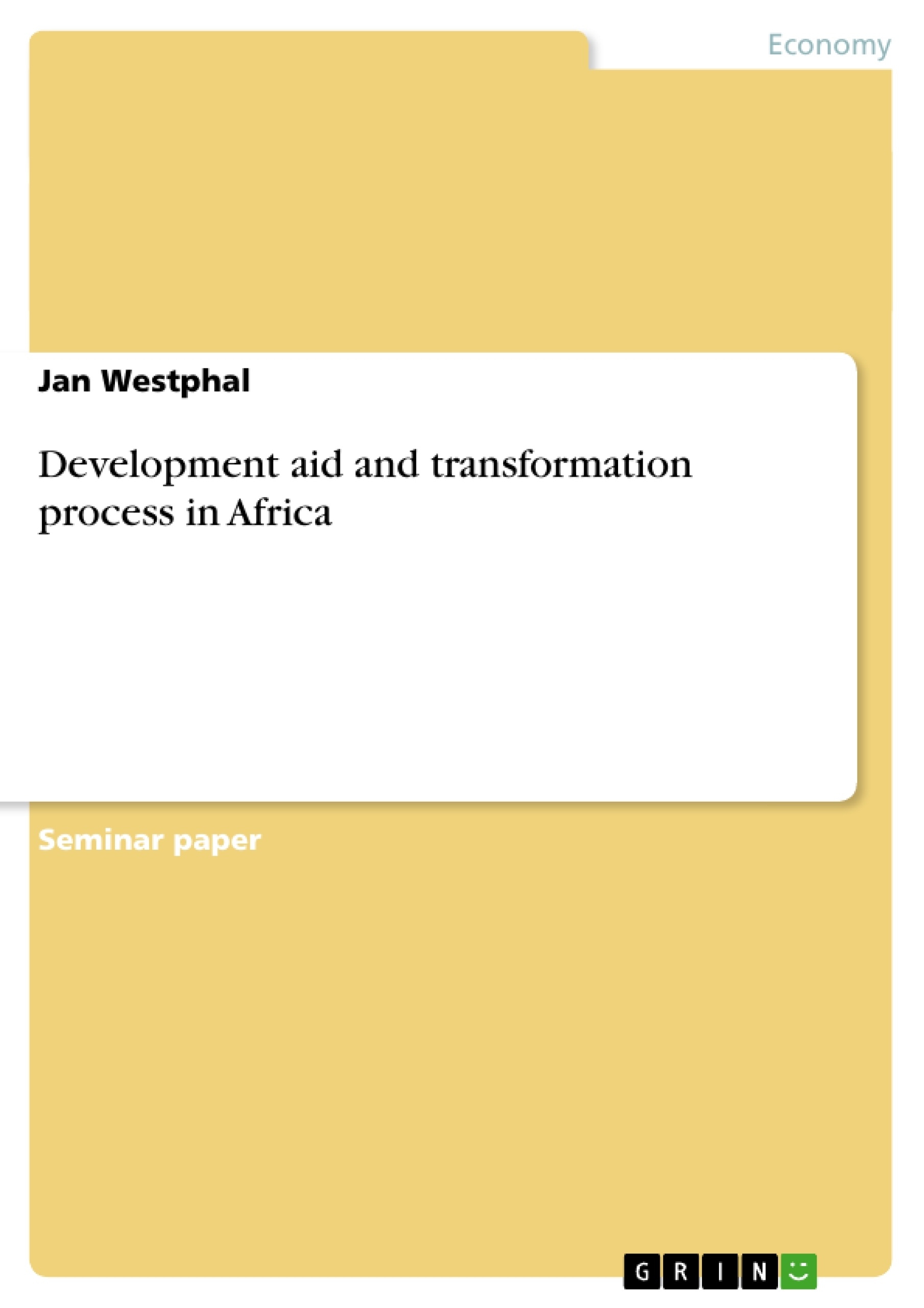The text “Demographic Transition in the Context of Africa’s Development” by Uche C. Isiugo-Abanihe deals with Africa’s development dilemma and the demographic transformation-process. The text says that since the 1950’s there is a big population explosion in Africa because of a rapidly declining mortality rate and a high or stable fertility rate. The author figures out that there are three theories that cause Africa’s development dilemma. The first one says that the population growth is the root of all the problems in Africa. The second one says, that population growth only place an accomplice role and that there are other problems leading mainly to the dilemma. And the third one says that Africa does not face any population problems at all. The author sticks to the second opinion and says, that there are many reasons (not only the population growth), which lead to Africa’s problems. He thinks that poor management and organization, unequal distribution of wealth and political power, corruption and misappropriation of funds, massive military spending and misallocation and misdirection of resources and efforts all together added up to the development dilemma. This is definitely a point I would agree with.
Abanihe also says that it is “the failure of many African governments to achieve well-planned and well-intentioned development goals and objectives. So in general I think his text gives a very good but general insight into Africa’s situation to the time, when the text was written. A thing I’d like to criticize is the fact that Abanihe completely lefts out to mention the development assistance of western countries, that is distributed to Africa and that he does not go very much into detail with his suggestions for improvement. It seems like he really knows what Africa’s problems are and he also knows what Africa did and does wrong but he does not figure out what Africa has to do to escape from the development dilemma. And exactly this is the point, where I want to join the complex of problems with my essay. With the help of newer sources I will summarize some ideas – especially the development assistance – and techniques that are and were applied on Africa to help that continent out of its dilemma.
Some of the recommendations I figured out might be not the most current. They might refer on facts, that already Abanihe considered. A further Problem in Africa is that every country is in a different phase of development.
Inhaltsverzeichnis (Table of Contents)
- Introduction
- Development Assistance
- Criterias for the organization of development cooperation
- Human rights
- Participation of the population in the political process
- Legal certainty and rule of law
- Poverty reduction
- Health care
- Family planning provisions
- Educational provision
- Environmental- and resources protection
- Conclusion
- Sources
Zielsetzung und Themenschwerpunkte (Objectives and Key Themes)
This essay aims to examine the development assistance provided to Africa and its potential impact on the continent's transformation process. The focus is on analyzing the effectiveness of development assistance in addressing Africa's development challenges, particularly the demographic dynamics, and outlining key criteria for its more efficient organization in the future.
- Development assistance and its effectiveness in Africa
- Demographic transition and its implications for development
- Criterias for the efficient organization of development cooperation
- Human rights and their role in development
- Participation of the population in the political process and development initiatives
Zusammenfassung der Kapitel (Chapter Summaries)
The introduction discusses Africa's development dilemma, focusing on the demographic transition process and its impact on development. It highlights the three theories regarding population growth and its connection to Africa's development challenges.
The chapter on development assistance examines the effectiveness of international assistance over the past 50 years, pointing out challenges such as poverty and debt. It presents different development strategies, including the complementary strategy aimed at meeting the basic needs of the poor.
The chapter on criteria for the organization of development cooperation emphasizes the need for incorporating human rights, political participation, and legal certainty into the development process. It highlights the importance of involving the population in development initiatives, particularly in rural areas.
Schlüsselwörter (Keywords)
This essay focuses on development aid, transformation process, Africa, demographic dynamics, human rights, participation, poverty reduction, and development cooperation.
Frequently Asked Questions about Development Aid in Africa
What is the "development dilemma" in Africa?
The dilemma refers to the paradox of ongoing poverty despite decades of international aid, often linked to rapid population growth and poor political management.
How does population growth affect Africa's development?
While some see it as the root cause of all problems, others argue it's an accomplice to issues like corruption, unequal wealth distribution, and misallocation of resources.
What are the criteria for efficient development cooperation?
Key criteria include respect for human rights, legal certainty, the rule of law, and the active participation of the local population in political processes.
Why has development aid often failed in the past?
Failures are often attributed to corruption, misappropriation of funds, massive military spending, and the failure of governments to achieve well-planned goals.
What role does education play in Africa's transformation?
Educational provision is a critical factor for sustainable development, as it empowers the population and is necessary for managing the demographic transition.
- Arbeit zitieren
- Jan Westphal (Autor:in), 2008, Development aid and transformation process in Africa, München, GRIN Verlag, https://www.grin.com/document/93868



